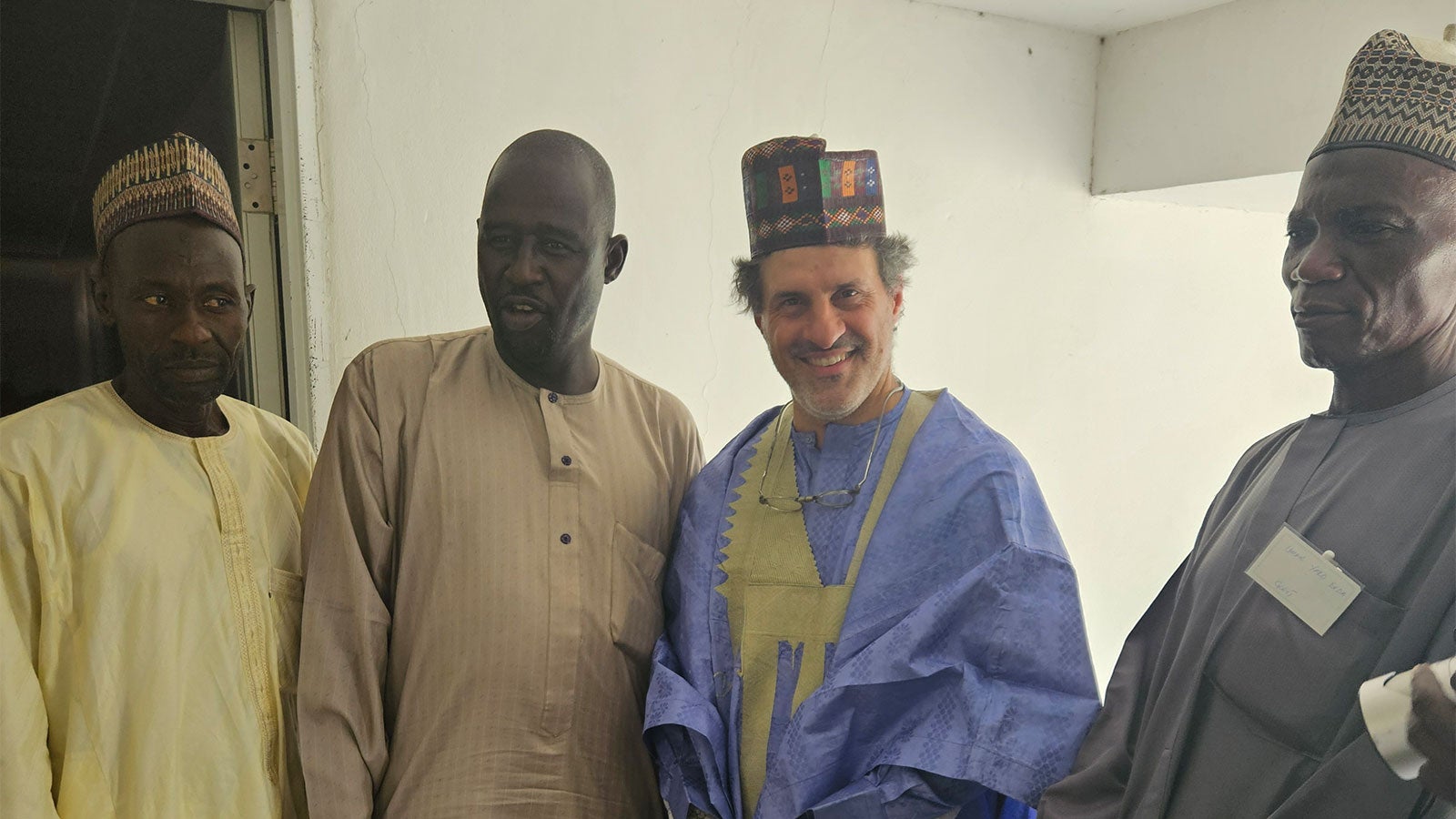Rice Engineering’s professor of statistics Frederi Viens is building a platform for unheard voices in Northeast Nigeria’s agrarian communities through his research in the Lake Chad Basin region.
Viens recently organized and moderated the first International Symposium on Sustainability of Agrarian Societies in the Lake Chad Basin. The symposium took place May 7-8 at the University of Maiduguri in the Borno State of Northeast Nigeria.
The symposium is part of a grant from the British Academy and the Wolfson Foundation, which Viens and collaborator Philip Ernst, chair in statistics and Royal Society Wolfson Fellow at Imperial College London, received for their study, “Sustainability of Agrarian Societies in the Lake Chad Basin.”
In this study, Viens and Ernst use Bayesian statistics and input from the local agrarian community to correct misconceptions about the impact of climate change and agrarian practices on the lake levels.
“The current discourse is that the lake is shrinking, but that is not true when you see the data [on lake levels],” said Viens. Hydrologists working in Borno State have independently arrived at the same conclusion, citing evidence of groundwater recharge and high variability in lake levels from year to year, in two different presentations at the symposium.
As a lead-up to the symposium, researchers also interviewed nearly 1,000 local farmers, herdsmen, and fishermen from the villages in the region who shared their personal challenges related to water accessibility and security.
“No one had ever tried to do anything like this before,” said Viens. “We were the first to bring academics and members of the government community together with farmers and fishermen in the region to exchange ideas face to face.”
A preliminary analysis of these conversations shows that the greatest challenge for farmers in the region is water accessibility and that they need additional boreholes to increase the availability of water to crops. Farmers also shared that the changes in patterns of the rainy season, rather than low lake levels, are among their greatest concerns for the region’s 30 million residents that rely on the lake basin for their livelihood.
This symposium underscores the importance of building local partnerships to understand data and agroecology from a cultural context. “Just because we have been studying agroecology in the United States and Europe for a very long time, doesn't mean that our conclusions apply to the global South,” said Viens. “I would say that really, what's indispensable is partnering with local rural stakeholders.”
Viens and Ernst worked with local collaborators to organize the symposium, including Udo Herbert, deputy vice chancellor (academic) and professor of animal physiology at Michael Okpara University of Agriculture in Umudike, Nigeria; Dennis Ikpe, research associate at the African Institute of Mathematical Sciences in Cape Town, South Africa, and data scientist in the Office of Institutional Research at SUNY Binghamton in New York; and Bethel Ukazu, project team leader at Thels Impact Consulting in Abuja, Nigeria.
The team hopes to have a second symposium during the three-year grant period to follow up with the agrarian community.

